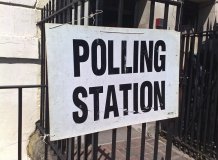Articles

Researchers examined the careers of 521 former British special advisers who served from 1997 to 2017.
Most former SpAds become “shadow lobbyists” when they leave Whitehall, major new analysis shows
Most former SpAds become ‘shadow lobbyists’ when they leave Whitehall, major new analysis of the career paths of political special advisors shows.
Researchers found special advisers go on to corporate lobbying and policy advocacy roles, but they do not register with either the official lobbying register, or the voluntary one. A minority became politicians while numbers going on to careers in public service have declined.
Daniel Orchard and Dr Athanassios Gouglas from the University of Exeter, and Heath Pickering, from KU Leuven, examined the first post-government career moves of 521 former British special advisers who served from 1997 to 2017.
Daniel Orchard said “Advisors land primarily in corporate lobbying roles and second in policy advocacy roles, lobbying on behalf of special interest organisations that influence government. The increasing trend of advisors moving to public affairs jobs which was apparent from the 1990s and early 2000s is now a dominant reality.
“A very small percentage end up in public service roles. By contrast, the popularity of businesses as the first choice for SpAds has by and large evaporated.”
A third of the former SpAds who took corporate lobbying jobs went on to work for nonregistered for-profit companies, the study, published in the British Journal of Politics and International Relations, says.
Dr Gouglas said: “Our findings lend weight to increasing concerns about former political staff revolving to shadow lobbying and point to potential lobbying regulation loopholes first raised by the UK Committee of Standards in Public Life. Various loopholes in the UK lobbying legislation allow former SpAds to fly under the radar.”
Researchers tracked former special advisors using names in official Government records, getting information on their careers mostly through self-reported information online.
The study used LinkedIn, information online including The Advisory Committee on Business Appointments, company websites, industry newsletters, government reports and press releases, and news articles. Researchers also collected data on whether the former SpAd ever registered individually as a lobbyist; whether the SpAd’s first post-government job was with a company registered on the lobbying registry and whether the person’s first post-government job was with a company registered as a client of a lobbying firm on the lobbying registry.
The data shows around 81 per cent of former special advisors remain in policy positions and 18 per cent move to other occupations. A total of 31 per cent had moved to corporate lobbying, 22 per cent in policy advocacy and 54 per cent were in some kind of ‘lobbying’ role after they leave government.
A fifth – 105 - entered politics but only 12 became MPs in the House of Commons and 5 in the devolved assemblies, while 25 became peers in the House of Lords and the remaining 63 landed in party roles.
The percentage of former SpAds who went on to public service roles has decreased by more than half in the past 30 years.
Heath Pickering said: “Our interpretation of this decrease is that public service has become less attractive in the course of the last decade given austerity measures and the growth of the lobbying sector.”
There are two lobbying registers in the UK - one voluntary (UKLR) and one mandatory since 2014 (ORCL).
In a post-2014 subset of the dataset researchers found no former SpAds registered with the ORCL and only two with the UKLR. They coded 89 as working in corporate lobbying and 32 in policy advocacy roles in the period 2014 to 2017.
When researchers searched ORCL for consultant lobbying organisations instead of individuals they found 63 SpAds landed in 37 different organisations that were registered as consultant lobbyists post-2014. Since ORCL came into effect in 2014, about 31 per cent of the 201 SpAds during that period, revolved out of government into an organisation that was registered as a consultant lobbyist. All 37 registered organisations are for-profit companies. This in turn means that 70 per cent of SpAds classified via this research as having revolved to corporate lobbying since 2014 (89) and were not individually registered as consultant lobbyists, landed in a firm that was listed on the lobbying registry.
The study says that former SpAds who have meetings with SpAds and top civil servants should be registered in the Office of the Registrar of Consultant Lobbyists (ORCL), which could be renamed as a lobbying and advocacy register. Additionally serving SpAds should be obliged to register all meetings with government outsiders in which public policy is being discussed.
Conservative and Liberal Democrat party SpAds were more likely to enter corporate lobbying than Labour SpAds. More Labour SpAds land in policy advocacy roles or exit the policy professions than Conservative and Liberal Democrat ones.
Previous careers also constrain future career choices, the study found. The majority of advisers come from politics (222), followed by non-policy professions (100) for example business, media and academia, then comes corporate lobbying (90), followed by policy advocacy (74) and public service (26).
Corporate lobbying was the biggest destination after leaving politics (163), the number going into politics had reduced by half (106) and had been relegated in third place as a career option. A total of 96 people went into non-policy professions and 39 into public service.
Date: 6 January 2023
